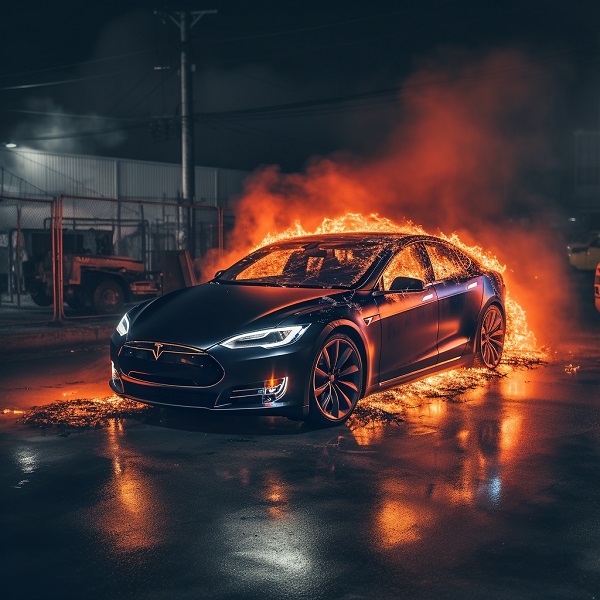The dangers and safety of Electric vehicles (EVs) have sparked discussions globally. Many people believe EVs are more susceptible to fire than traditional gasoline-powered cars, but does the data support this claim? The increasing popularity of EVs means more scrutiny, but studies suggest that fire incidents involving electric cars are far less common than those involving internal combustion engine (ICE) vehicles. Research from Consumer Affairs reveals that gasoline and diesel cars are 20 times more likely to catch fire than EVs, yet EV fires make headlines more often due to their rarity and the complexity of extinguishing battery-related fires.
Are EV Fires More Common Than Gasoline Car Fires?
Contrary to popular belief, EVs do not pose a higher fire risk than gasoline-powered cars. An Honest John report analyzing fire statistics found that EVs accounted for only 25 fires per 100,000 vehicles, whereas gasoline-powered cars reported 1,530 fires per 100,000 vehicles. This stark contrast highlights that while EV fires do happen, they are statistically much rarer than conventional vehicle fires. Additionally, studies show that fossil fuel vehicles are significantly more prone to fires due to the presence of flammable liquids like petrol and diesel, unlike EVs, which primarily rely on battery technology.
Why Do EV Fires Get More Attention?
EV fires attract significant media attention because of their different combustion process. When a gasoline vehicle catches fire, it’s often caused by leaking fuel or an overheated engine. These fires can be contained quickly by cutting off the fuel source. EV battery fires, however, involve a phenomenon called thermal runaway, which occurs when a battery overheats and triggers a chain reaction of energy release. This process can make the fire burn hotter and longer, requiring thousands of liters of water to cool it down, as noted in an Autocar report, which found that EV fires take four times longer to extinguish than gasoline fires.
What Causes EV Fires?
While EV fires are rare, they can occur due to battery damage, faulty charging equipment, or manufacturing defects. An Honest John study identified that overcharging accounts for less than 0.01% of all EV fire incidents, meaning fire risk from charging is extremely low. Researchers have also found that thermal runaway events in modern EV batteries have significantly decreased with improved cooling technology, making newer EV models even safer than earlier versions.
Are EVs Safer Than Gasoline Cars?
Data from Consumer Affairs shows that EVs are 20 times less likely to catch fire than ICE vehicles. According to an Autocar study, advancements in EV safety protocols, such as fireproof battery casing and rapid cooling systems, have further minimized fire risks.
Final Thoughts
While EV fires do happen, they remain far less frequent than gasoline vehicle fires. The fear surrounding them is largely due to their new technology and the complexity of extinguishing battery fires, rather than an actual higher likelihood of fires. Studies consistently show that EVs are statistically safer in terms of fire risk than gasoline-powered vehicles.
So, are electric cars really more dangerous? The data says no. As EV technology continues to improve, fire risks will continue to decline, making them an even more reliable choice for the future of transportation.




